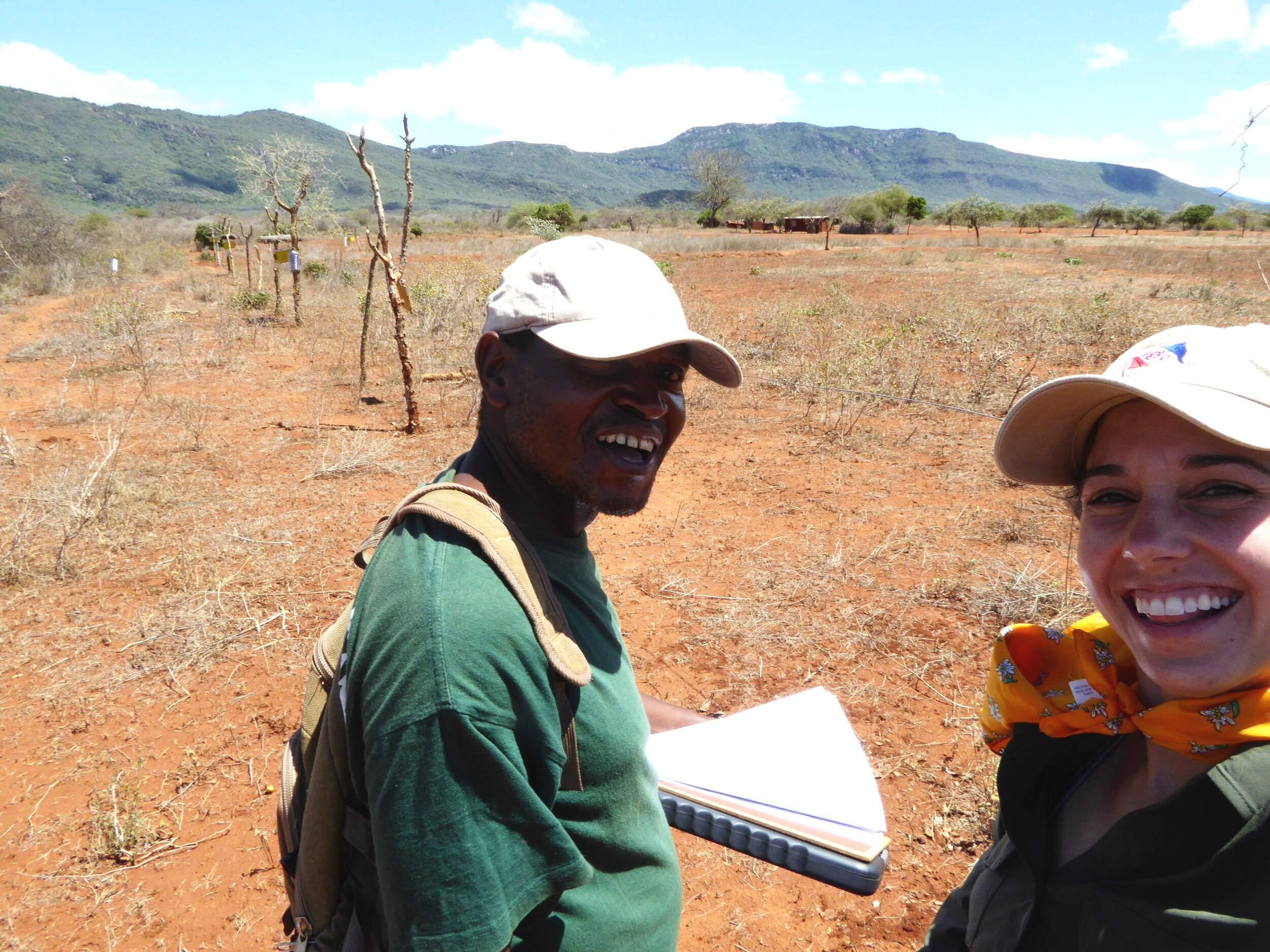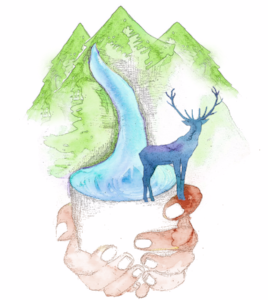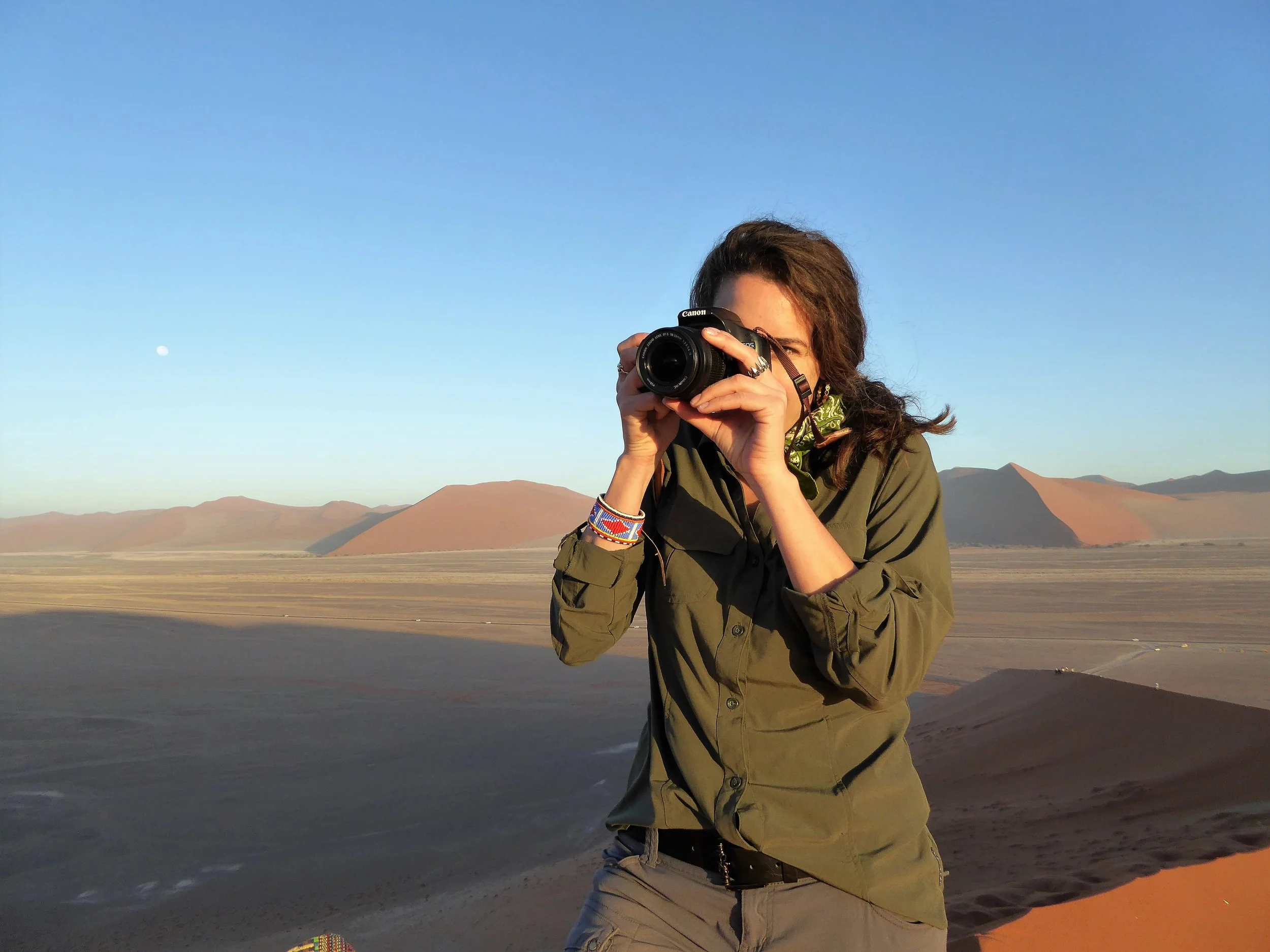
Jackie explores human-nature relationships for organizations and protected area management agencies to understand drivers of human behaviors related to biodiversity conservation, natural resource uses, and governance. Her work focuses on interdisciplinary approaches, including fieldwork and analysis in human geography, social psychology, and sociology sciences.
Driven by her core belief that the success of scientific endeavors must involve synergetic collaborations with local communities, she pursues conservation actions that empower community-led solutions, incorporate diverse knowledge systems, and address biodiversity conservation. She is increasingly interested in understanding the influence of global policies on national and community-level processes in the contexts of protected areas and ‘other effective area-based conservation measures’ (OECMs). Jackie also aims to incorporate other forms of communication into projects, such as collaborating with filmmakers and visual artists, to share people’s cultural traditions and values and the human stories behind conservation efforts.
uncovering Social-political factors affecting community-park relations
As a U.S. Fulbright grantee (2022-2023), Jackie designed and led a field-based project on understanding the underlying social-political factors that affect community-park relations in Queen Elizabeth National Park, Uganda. Specifically, exploring the relationships between park rangers and communities living within the park and how these relationships are related to protected area effectiveness. Using mixed ethnographic methods of participatory mapping and interviews, the research helped inform Uganda Wildlife Authorities’ creation of adaptive conservation policies and actions that align with the local context and are most likely to address human-wildlife conflicts, reinforcing both cultural values and wildlife conservation.
Understanding visitors of public lands
As a research associate, Jackie worked with Dr. Alia Dietsch in managing the ongoing National Visitor Survey project that provides new information about visitors and their experiences on National Wildlife Refuges in the United States. This nationwide survey is in collaboration with the U.S. Fish and Wildlife Service, helping inform Comprehensive Conservation Plans, service performance planning, visitor services, transportation planning processes, and public lands policy. Peer-review publication here.
Exploring the co-location of Mapped Landscape values and activities
Jackie collaborated with Dr. Lee Cerveny and Dr. Kelly Biedenweg to explore the co-location of mapped place values and landscape activities across four seperate national forests in the Western U.S.: Olympic National Park, Deschutes National Forest, Ochoco National Forest, and Crooked River National Grassland. This project was a component of a larger body of Human Ecology Mapping work led by Dr. Cerveny with the U.S. Forest Service, supporting public land management decisions.
Addressing human-giraffee interactions
For four years, Jackie worked with Dr. Ali Abdullahi to assimilate social science research into project actions for the community-based Somali Giraffe Project he initiated in 2018. The various research projects explored the relationships between cultural values, beliefs, and human behaviors associated with the reticulated giraffe (Giraffa camelopardalis ssp. reticulata) in North Eastern Kenya. These projects were research components of the larger National Recovery and Action Plan for Giraffes led by the Kenya Wildlife Service.
Examining Sense of Place for marine conservation planning
With a team of nine researchers, Jackie co-developed and conducted a field-based project that explored sense of place among natural resource organizations in Bocas del Toro, Panama. Using text analysis, cognitive mapping 3CM, and a facilitated participatory mapping workshop, the project interrogated how organizations’ processes are affected by their perceptions of place. Results helped advise marine conservation planning for the Bocas Del Torro community and the Panamanian government. Peer-review publication here.
supporting adaptive management on Malheur National Wildlife Refuge
Collaborating with Dr. Kelly Biedenweg and the U.S. Fish and Wildlife Malheur Wildlife Refuge, Jackie helped implement a project to understand stakeholder values and perceptions of Malheur Lake and its management. Jackie carried out the interviews and attended workshops with stakeholders involved with the refuge, including High Desert Partnership, U.S. Geological Survey, Ducks Unlimited, and more. A report was written for the U.S. Fish and Wildlife, supporting long-term adaptive management of Malheur Lake.
measuring and modeling Tolerance for black bears
For her master’s thesis, Jackie focused on measuring the concept of tolerance for wildlife and modeling its psychological predictors in the context of human-black bear interactions in Oregon. It incorporated the overlapping phenomena of human cognition, sociocultural norms, spatial land use, and native wildlife to help inform future black bear management decisions in Oregon. Peer-review publications here and here.
To read her publications visit ReasearchGate
Check out Jackie’s video field journal when she was conducting research in Oregon to understand people’s perceptions of and experiences with black bears.
The cognitive hierarchy theorizes that human behavior is guided by a hierarchy of interrelated cognitions. Watch the video to learn more in the context of human-wildlife relations.
Creative design and voice-over by Jackie and animation by Arigato Studio.











